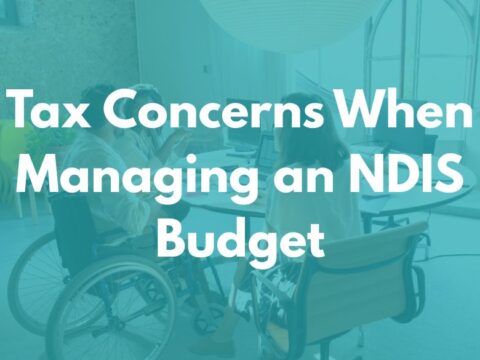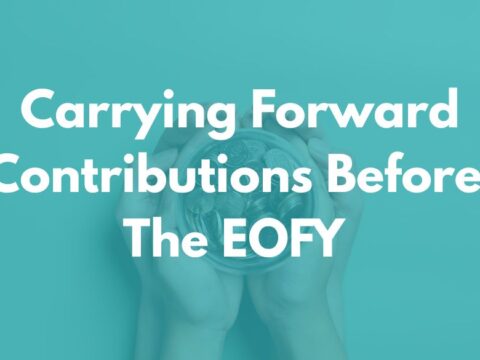2024-25 Federal Budget Announcements
The Federal Budget was handed down on 14 May 2024, and has outlined a number of changes that impact businesses, tax & superannuation.
Instant Asset Write-Off Extended
Small businesses with an aggregated annual turnover of less than $10 million will continue to be able to immediately deduct the full cost of eligible assets costing less than $20,000 that are first used or installed ready for use by 30 June 2025.
The asset threshold applies per asset so small businesses can instantly write off multiple assets. Assets valued at $20,000 or more (which cannot be immediately deducted) can continue to be placed into the small business simplified depreciation pool and depreciated at 15 per cent in the first income year and 30 per cent each income year thereafter.
Stage 3 Tax Cuts
From 1 July 2024, every taxpayer will receive a tax cut following changes announced by the federal government earlier this year. This means that workers in every tax bracket will pay less income tax.
The reforms reduce the 19 per cent tax rate to 16 per cent, reduce the 32.5 per cent tax rate to 30 per cent, raise the threshold at which the 37 per cent tax rate applies from $120,000 to $135,000 and raise the threshold at which the highest rate of 45 per cent applies from $180,000 to $190,000.
Foreign Resident Capital Gains Tax Regime
The Government will strengthen the foreign resident capital gains tax (CGT) regime to ensure foreign residents pay their fair share of tax in Australia and to provide greater certainty about the operation of the rules.
The amendments will apply to CGT events commencing on or after 1 July 2025 to:
- Clarify and broaden the types of assets that foreign residents are subject to CGT on
- Amend the point-in-time principal asset test to a 365-day testing period
- Require foreign residents disposing of shares and other membership interests exceeding $20 million in value to notify the ATO, prior to the transaction being executed.
This will bring foreign residents closer in line with Australian resident taxpayers and may include assets such as shares that are currently not taxed (in most instances)
Enhancement To Commonwealth Government-Funded Paid Parental Leave
The Government will provide $1.1 billion over five years from 2023–24 (and $0.6 billion per year ongoing) to strengthen Australia’s government-funded Paid Parental Leave (PPL) scheme and improve women’s retirement outcomes.
Eligible parents will receive an additional payment based on the Superannuation Guarantee (12 per cent of their PPL payments) as a contribution to their superannuation fund for births or adoptions after 1 July 2025. Small business employees will also be provided additional support in administering paid parental leave as part of the measure.
This measure aims to help normalise parental leave as a workplace entitlement, like annual and sick leave and reduce the impact of parental leave on retirement incomes.
Freeze Social Security Deeming Rates
The government will freeze social security deeming rates at their current levels for a further 12 months until 30 June 2025 to support Age Pensioners and other income support recipients who rely on income from deemed financial investments and their payment to manage the cost of living pressures. This measure is estimated to benefit around 876,000 income support recipients, including 450,000 Age Pensioners.
The Fair Entitlements Guarantee Recovery Program
The Government will also recalibrate the Fair Entitlements Guarantee Recovery Program to pursue unpaid superannuation entitlements owed by employers in liquidation or bankruptcy from 1 July 2024.
Energy Bill Relief Fund
The Energy Bill Relief Fund is set to provide a $300 rebate to households and a $325 rebate to eligible small businesses on 2024-25 bills. This measure partly extends the previous Budget’s measure, titled Energy Price Relief Plan.
Commonwealth Rent Assistance
The maximum rates of Commonwealth Rent Assistance is set to increase by a further 10% from 20 September 2024, building on the 15% increase in September 2023.
The current maximum payment for a single person receiving rent assistance is $188.20 a fortnight, and $125.47 for a single person in a share house. That means the payment would increase by about $19 a fortnight for a single person before accounting for indexation.
HECS Debt Changes
Pending a legislative change that must be passed through parliament, student debts will grow each year at the rate of either the consumer price index or the wage price index — whichever is lower.
The Government will backdate this relief to all HELP, VET Student Loan, Australian Apprenticeship Support Loan and other student support loan accounts that existed on 1 June 2023. This means that the loans for that year will grow at the lower wage index rate or 3.2%, instead of the 7.1% inflation rate they were measured at.
Increasing the Medicare levy low-income thresholds
The Government has increased the Medicare levy low-income thresholds for 2023–24, ensuring more than one million low-income taxpayers continue to be exempt from the Medicare levy or pay a reduced levy rate.
Impact of the Douglas Decision on Social Security Means Testing
The Government will provide funding to implement a social security means test treatment for the military invalidity payments affected by the Federal Court’s decision in Commissioner of Taxation v Douglas [2020] FCAFC 220.
This approach ensures the Douglas decision does not affect income support payment rates for veterans who receive an invalidity payment from the Military Superannuation and Benefits Scheme and the Defence Force Retirement and Death Benefits Scheme, compared to the pre-Douglas arrangements.
IMPORTANT NOTICE
This blog post contains general information only and has been prepared by Allworths without reference to your objectives, financial situation or needs. Allworths cannot guarantee the accuracy, completeness or timeliness of the information contained here. By making this information available to you, we are not providing professional advice or recommendations. Before acting on any of the information contained here, you should seek professional advice.




